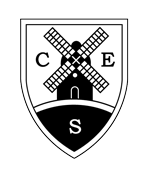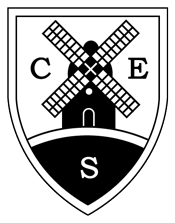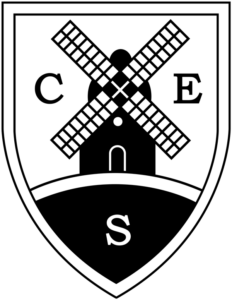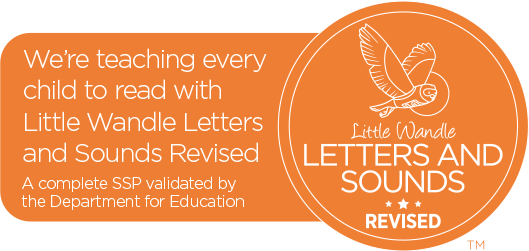Reading and Phonics
Foundation / Key Stage 1
Little Wandle Letters and Sounds Revised is a complete systematic synthetic phonics programme (SSP) developed for schools by schools. Based on the original Letters and Sounds, but extensively revised to provide a complete teaching programme meeting all the expectations of the National Curriculum, the Ofsted Deep Dive into reading and preparing your children to go beyond the expectations of the Phonics Screening Check.
The programme provides a full progression through all commonly occurring GPCs, working from simple to more complex, and taking into account the frequency of their occurrence in the most commonly encountered words. At each appropriate stage, the lesson templates guide teachers through the learning of GPCs, the formation of graphemes, blending for reading, segmenting for writing, and reading and writing simple sentences. The weekly content grids map the introduction, practice and application of each GPC, alongside the controlled learning of tricky words.
Little Wandle Letters and Sounds Revised promotes children’s engagement in learning through:
- teacher energy and enthusiasm
- extensive interaction between teachers and children in lessons
- generous praise and encouragement
- building on and celebrating success.
The programme includes application with decodable books as an essential stage of the teaching sequence. Collins Big Cat for Little Wandle Letters and Sounds Revised have devised fully decodable books matched to our programme progression.
© Little Wandle Letters and Sounds Revised, 2021.
Key Stage 2
Through independent reading, shared reading in literacy lessons and cross-curricular sessions, guided reading groups and reading for pleasure, reading in Key Stage 2 develops and extends the skills acquired in Key Stage 1.
Children explore a wide variety of genres, both fiction and non-fiction which allows them to access, input ideas and understand what they are reading. They are given opportunities to speculate on the tone and purpose of texts they explore as well as to consider both the themes and audience.
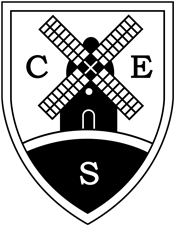
Pupils challenge injustice and engage in meaningful social action projects beyond fundraising. This has a very positive impact on both their own lives and those of others.

Governors are very well informed and know their school well. They provide the right level of support and challenge.

Safeguarding is effective and children’s welfare requirements are met. Staff are well trained and vigilant in ensuring that all children are safe.

Challenged by their learning, pupils are keen to seek justice and fairness for those in society. They talk about ‘how they find a problem and try to sort it out’.

In English, texts are carefully chosen to encourage reflection and understanding difference and diversity.

Pupils behave well and have positive attitudes to learning. They respect and listen to one another and work well together.

Parents are confident that their children are kept safe and are cared for well.

High quality displays in all subjects, including RE, are a priority and enable pupils to see the progress they are making.

Pupils’ development as advocates for social justice is particularly strong and goes beyond regular fundraising.

The school’s distinctive Christian vision has brought clear focus and direction to ensure rapid progress as a Church school.

Leaders and staff are passionate in their drive to ensure every child at Skidby flourishes.

The school offers a range of opportunities for pupils to participate in a number of afterschool sports clubs and competitive events.

The teaching of writing is good. Teachers ensure that pupils learn to write in different styles and for different audiences.

Pupils understand the conventions of different genres and demonstrate this in their own compositions.

Pupils make good progress in mathematics. In most classes, teachers plan meaningful and wide-ranging opportunities to solve problems, investigate mathematical ideas and develop mathematical reasoning.

Inspired by the Christian vision, collective worship is highly valued and central to the daily lives of pupils. It encourages pupils to reflect on, and live out the school’s Christian values in their own lives.

Teaching assistants have a good understanding of their roles and provide effective support to the pupils they are working with.

Aspirations are high and all, including the most able, are challenged. Pupils take pride in their work and delight in seeing their efforts displayed around school.

Religious education (RE) is well led and taught across school. Pupils have an informed understanding of a range of faiths.

The school’s work to promote pupils’ personal development and welfare is good.

A Christian school in a small community, making a big difference.

Pupils attend school regularly. They are very happy in school and feel safe.

Staff communicate with parents well. Parents are appreciative of the information they receive about how well their children are doing and what they are learning.

The behaviour of pupils is good. Around the school, in the dining hall and on the playground, pupils are well behaved and courteous to each other and adults.

Pupils describe their own spirituality as ‘being themselves, thinking beyond themselves, caring for others, the wider world and beyond’.

Collective worship is a central part of daily life, it is invitational and inclusive.

Throughout the school, pupils are polite, friendly and welcoming. They show respect, both to adults and to each other.

Purposeful and varied outdoor learning provides the opportunity for pupils to engage in the awe and wonder of the natural world.

Leaders ensure that all curriculum decisions have their vision and associated values of respect, resilience and responsibility at the forefront.

When working together, pupils show good levels of cooperation and help one another willingly. In lessons, they respond well to tasks they have been given and enjoy the work they do.

Pupils are taught how to keep themselves safe in a variety of situations, such as when using the internet.

Younger pupils use punctuation and capital letters accurately, forming sentences with increasing complexity.

Teachers choose interesting texts to capture pupils’ imagination and support their learning.

Across year groups, pupils who are currently in the school are making good progress in reading, writing and mathematics.

Leaders are dedicated to make a difference to every pupil and staff member.

The curriculum effectively provides time for reflection and spiritual growth.

Pupils enjoy lessons because teaching is challenging them to learn more and achieve better.

From an early age there is a strong focus on developing curiosity, by asking questions and reflecting on responses.

Parents are positive about the school’s work and the education their children receive.

Teachers successfully plan learning activities that meet the needs and interests of the range of ages and abilities in their classes.

In phonics lessons, teachers take opportunities to explain that sounds can be made with different groups of letters. This helps pupils to read simple words.

The breakfast club provides a healthy meal each morning for any pupil who wishes to attend.

Teaching, learning and assessment are good across the school.

Driven by their distinctly Christian vision, this school has been on a rapid journey of improvement as a Church school over recent years.
